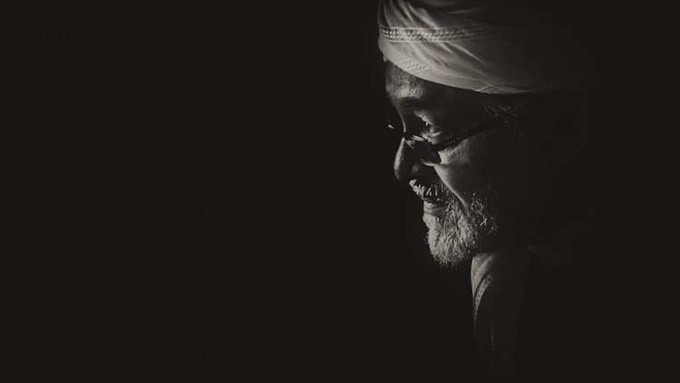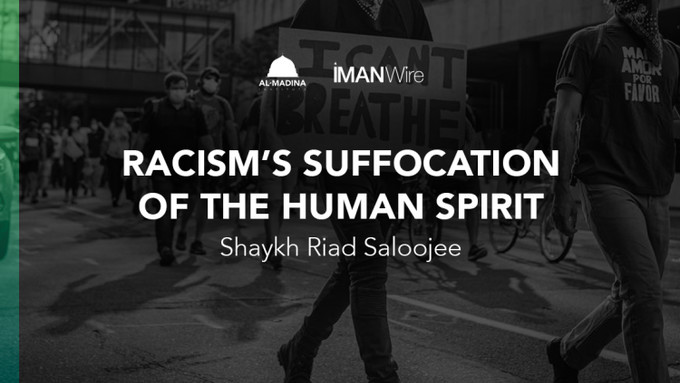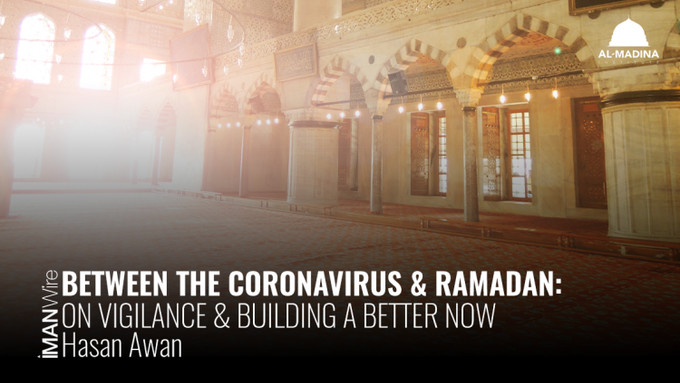Crucible of Change
A public intellectual recently wrote that we are all living, through the coronavirus tribulation, a pandemic of death’s dominion. Are we?
A conversation, somewhat like this, transpired a few days ago in my home over breakfast:
Father: A ḥadīth states that the one who remains in his home during an epidemic will have the reward of a martyr.
Children: Really? Even though he does not die?
Father: Yes.
Children: Wow!
Child 1: Abbi, I really need some stationery for work I am doing. Can you get it for me?
Child 2 (who is more social than society itself): There’s no way I’m going. I’m staying home to be a martyr.
Child 3: So, I’ll be a living martyr then?
Father: It appears so.
The ḥadīth is found in the Musnad of Imam Aḥmed: “…there is none who, during an epidemic, remains in his home – patiently, seeking reward from Allāh, knowing that nothing afflicts him except what Allāh has decreed for him – except that he has a reward similar to a martyr.” The ḥadīth is also found in Ṣaḥīḥ al-Bukhārī with ‘land’ instead of ‘home.’
As a manifestation of Allāh’s Beauty in His Majesty, those who remain at home in loving surrender to the legal and moral objectives of the Sacred Law, preserving life, are granted the gift of a deceased martyr.
Allāh is Infinitely-Generous and Loving to His servants. And whoever obeys Allah and His Messenger will be with those upon whom Allāh granted His favour – the Messengers, the steadfastly truthful, the martyrs and the righteous. And how excellent are they as companions (4:69).
With the correct spiritual attitude, the rational, mundane measures we take to protect ourselves become sacred. Every field of life activity can be a means to connect with the Divine.
Allāh is indeed al-Laṭīf, the Subtle, in the means and meanings of His grace. These weeks, or more, or less, need not be a lockdown or a prison. They could be my great escape. Why not allow them to be the crucible of my change?
Great transformative change needs its initial conditions. And here they are: My daily routine is re-scripted; my many attachments are severed; and my addictive pathways are re-routed. With the above external variables controlled for, there are no usual suspects. It’s just me, myself and I.
I am now free to retreat from the world into my own inner world. While there are many dimensions to this journey, two internal energies are indispensable to begin: an intention of commitment, and the catalyst of reflection.
Do I want to change? Do I wish to know the real state of my spiritual heart and its relationship with the Divine? Am I willing to face my heart’s contaminants, its attachments and addictions – the good, the bad and the ugly?
Do I take quality time to reflect? What are the pangs of non-gratification that I feel? For whom, for what, for where? What are the ghosts that haunt the halls of my heart when I am home alone? Most tellingly: Where does my heart and mind roam while I am conversing to Him in ṣalāh?
Without the catalyst of quality reflection, I am living quarantined from my heart. I will never know how much of my life is enslaved to the finite, and how much of it is free in the Infinite. And I will never live the life of a heart that perceives, experiences, longs, and seeks the Divine.
The Messenger (peace and blessings be upon him) counselled: Remember death, the destroyer of pleasures, often. Reflecting upon death effaces attachments that are immoral, excessive and harmful. Remembering death brings balance, quality and goodness to life.
If, through the catalyst of sincere inner reflection, I experience my defects and deficiencies and turn to Him with a heart needy and destitute, then Allāh has showered me with untold grace. I am living in a crucible of change.
The more I see of my defects and deficiencies, the more my heart will open to witness Him. And His Infinite Beauty and Majesty will captivate my heart and beckon it, homeward, to Him.
Let us make our time homebound fruitful with a commitment to change and with the catalyst of quality inner reflection. For the martyr, shahīd, literally, and in essence, means one who stands witness to Divine Majesty and Beauty.
Allāh states: The martyrs are alive with their Lord, nourished (3:169). May our time homebound make us living martyrs, who are with their Lord in life before death, nourished by His presence and proximity.
May Allāh cause us to die to all that He does not love and resurrect us, through this trial, to live a truer life beyond mere life. And then, death shall have no dominion. Āmīn.
Life & Culture Related Articles

Shaykh Seraj Hendricks: Obituary
An internationally recognised Islamic scholar, who saw spirituality, justice, and knowledge as integral to an authentic religious existence. Shaykh Seraj Hendricks, who passed away on the 9th of July 2020 at the age of 64, was a scholar of international repute, able to communicate and engage on the level of state leaders, religious scholars and the broader public.

Racism’s Suffocation of the Human Spirit
I can’t breathe. George Floyd’s last words, conveying, verbatim, Eric Garner’s last words, with echoes through a long chain of souls – Breonna Taylor, Michael Brown, Walter Scott, Freddie Grey, Jamar Clark, Alton Sterling, Stephon Clark and Botham Jean – is a testamentary call that should pierce every Muslim’s mind and heart.

Between the Coronavirus & Ramadan: On Vigilance & Building a Better Now
I pray that, as we continue to lovingly welcome and vigilantly discover the blessings inherent in Ramadan upon us, we awaken to all the moments and especially the moment that Allah has chosen to place us. A quotation from Charles Dickens, the opening to one of his novels, is worth reflecting on: “It was the best of times, it was the worst of times.”